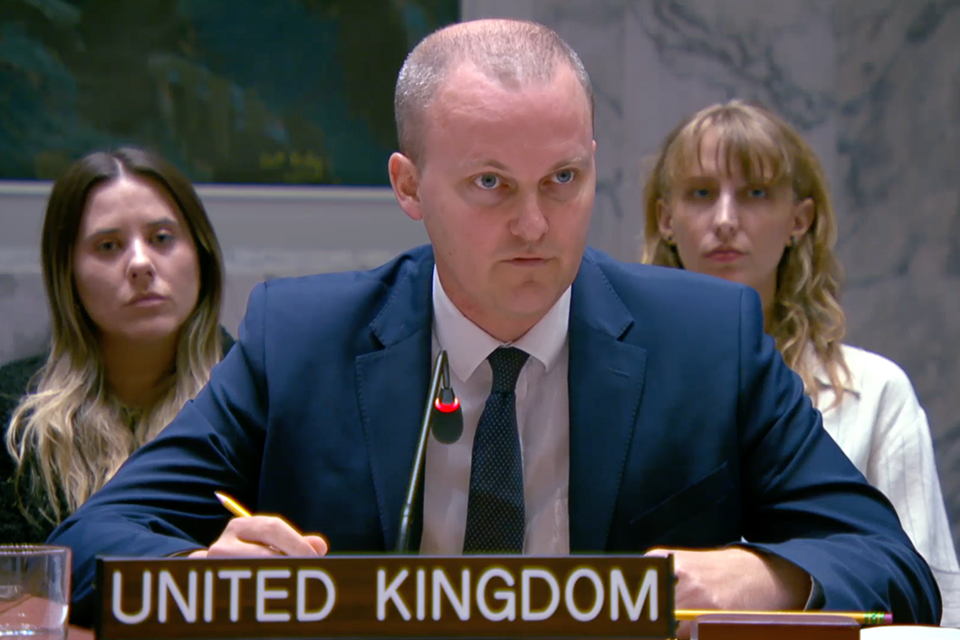Kosovo and Serbia must show their commitment to cooperation and dialogue: UK statement at the UN Security Council
Statement by Fergus Eckersley, UK Minister Counsellor, at the UN Security Council meeting on UNMIK.

Let me begin by thanking the Special Representative for the work she and her team are doing to promote stability and respect for human rights in Kosovo.
The UK is a long-standing supporter of Kosovo’s sovereignty and independence. We remain committed to supporting an inclusive, diverse and multi-ethnic democracy in Kosovo.
We welcome, for example, Kosovo’s efforts to recruit police officers from non-majority communities, and its commitment to tackling Conflict Related Sexual Violence including through its leadership of the International Forum for Women, Peace and Security.
Yet for many years the absence of a normal relationship between Kosovo and Serbia has negatively impacted the lives of individuals living in both countries and impacted regional stability.
In recent weeks we’ve seen positive steps towards greater cooperation. This includes easing restrictions on Serbian imports into Kosovo, and the agreement securing Kosovo representation in the Central European Free Trade Agreement.
We are, however, concerned that progress in the EU-facilitated dialogue has been faltering. We call upon both parties to reaffirm their commitment to the EU-facilitated dialogue and we echo the Secretary-General’s call for greater participation of women in the process.
It is important that both sides demonstrate the political will and the courage to fully implement existing agreements under the dialogue, including the establishment of an Association of Serb-Majority Municipalities.
At the same time, it is important for all sides to avoid actions which could jeopardise such progress. We urge Kosovo to carefully consider the impact of its decisions on all its citizens including those from non-majority communities and to work with its partners.
And we urge Serbia to play its part in supporting efforts to ensure justice and accountability for the perpetrators of last year’s shocking attack in Banjska and to play a constructive role in reducing tensions and promoting positive relations in the region.
I would like to end by expressing the UK’s gratitude to the Special Representative and all Mission staff who have contributed to UNMIK’s work over the last 25 years.
Promoting dialogue and trust-building between Kosovo’s communities is and remains vital.
However, it has been over sixteen years since Kosovo’s independence and the situation is unrecognisable from 1999. It is therefore time for this Council to review UNMIK’s role to reflect conditions on the ground.